What Are The causes And Effects Of Growing Food Waste Problem?
In recent years, food waste has become a growing problem attracting the attention of consumers, scientists, food technologists, and activists alike.
It is considered a global paradox that puts emphasis on agriculture to improve food security, and then a third of all the food produced ends up as waste.
Food waste is becoming a huge concern because of its social, economic, and environmental impacts and costs.
Barilla Center for Food and Nutrition (BFCN) defines food waste as food losses during processing, distribution, and consumption.
If you want to know the causes of food waste and find ways to reduce it, keep on reading this article.
We will describe the reasons for food waste, its environmental impact, and potential solutions to reduce food wastage.
What Are The Causes Of Food Waste?

Here are some common causes of food waste that everyone should know:
Lack Of Appropriate Planning :

One of the most significant causes of food wastage is the lack of appropriate planning from the consumer side. Sometimes people purchase a lot of things that they do not have to consume at that time.
They usually go to waste when you buy extra food items because of contemporary work schedules and appointments.
With the change in work times, food preparation plans tend to change, and people need to remember to use them on time.
In this manner, it is out of the control of most people, which leads to the expiry of food items, and ultimately, these items are thrown into waste.
Moreover, due to poor planning, people can not prepare good food, and when the food doesn’t taste good, it all ends up well-spent.
Over-Purchase And Preparation Of Food:

Most of the time, food goes wasted due to purchasing or preparing more than what is needed. If you purchase or prepare too much food, then it is obvious that the extra food will go to waste.
It is always better to purchase food items smartly. If you prepare extra food, you can share it with your neighbors or needy people so it will not go to waste.
Alternatively, partially used food or leftover food that you put at the back of your fridge is never reused.
The same thing applies to the excess purchases that reach the expiry and are never used. Therefore, all the excess, whether it is purchased or prepared food, goes to waste.
Food Waste During Industrial Processing:

Another significant reason for food waste is the protocol on food safety. The food safety protocols do not allow any error at any step of food preparation and do not compromise the quality of the final product.
As such, any confusions or errors during industrial processing mean that the food products that do not meet the set standards are wasted.
Food manufacturing companies should comply with food safety regulations and also establish no error margins.
Companies not complying with the food safety policies end up creating waste because even small errors like imperfections in shape or appearance mean they will go to waste instead of going to final products.
Production trials, overcooking, wrong sizes, packaging defects, and wrong weights are some aspects that can result in the rejection of the food products and make them imperfect according to the food production regulations.
Over-preparation Of Food In Hotels And Restaurants:
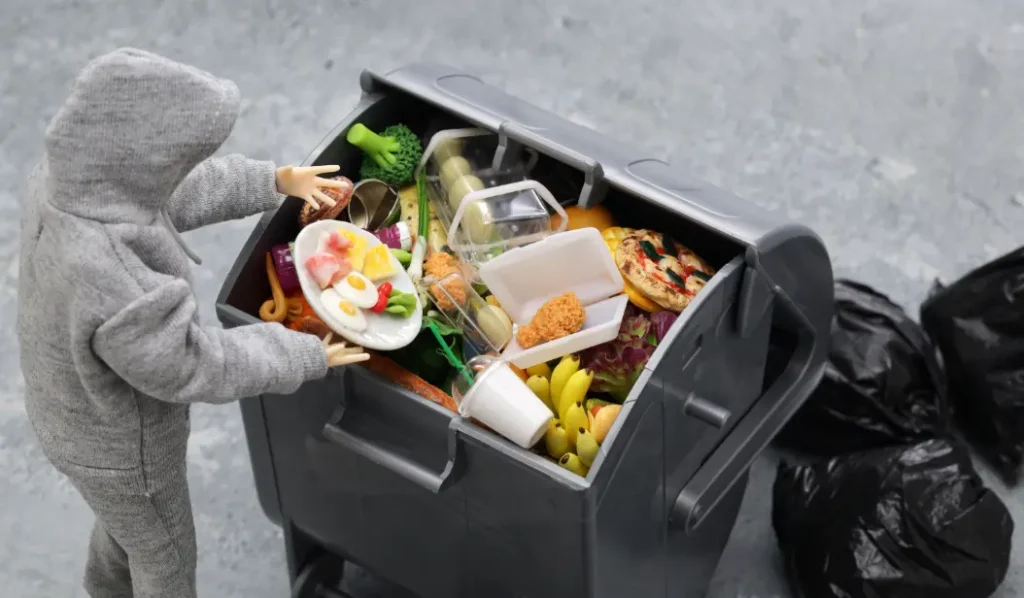
Many hotels, restaurants, and food service industries are likely to over-prepare/produce food. However, their intention is good as they want to manage their menu in a better way in case of customer volume, but this over-prepared food often leads to food wastage if it remains unsold.
Studies committed to reducing food wastage have found that the overproduction of food in the food service industries is one of the leading causes of food wastage.
Since the food service operations need the ability to quantify the amount of food consumed on average, they keep on producing the amount they thought to be enough. But most of this food is actually optional.
Other than that, many managers think that producing large batches of food can minimize costs, but the fact is that it results in more food waste as compared to cook-to-order preparation or preparing food in small batches.
Over-Ordering In Stores Or Supermarkets:
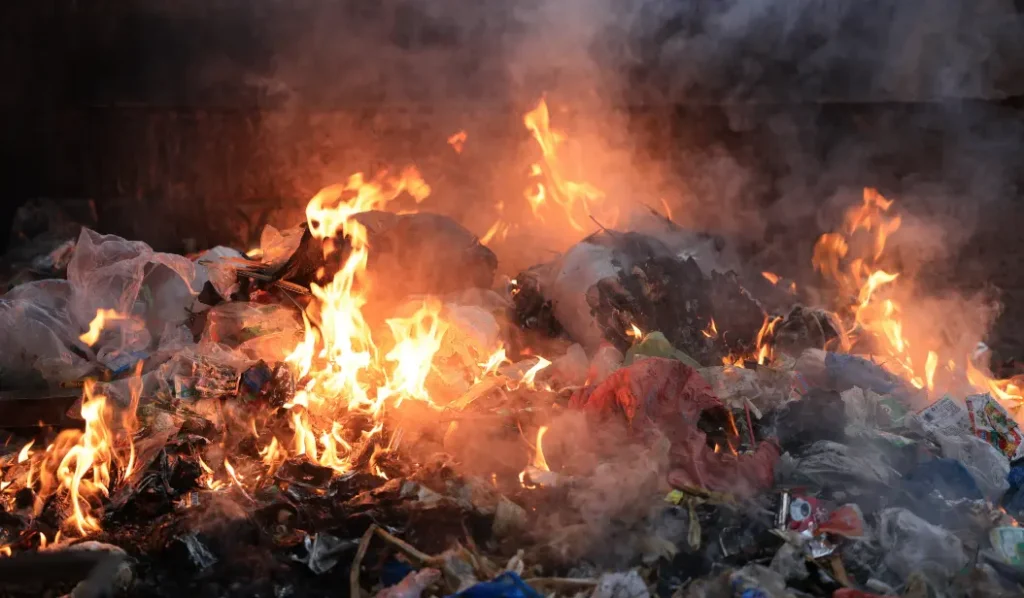
Another reason for food waste is over merchandising of food items and products in wholesale markets, retail stores, and supermarkets.
Food service operations are typically focused on over-merchandizing in supermarkets and food stores with the use of attractive and beautiful displays. Thus creating the idea of abundance and promoting sales and customer satisfaction.
It is an aspect that is usually not considered a factor that can increase food waste. But when people buy more than what they need, the excess food items often end up in the waste bin.
Similarly to retail stores, over-ordering food items leads to foodstuff expiry because most of it remains unsold.
Managerial, Technical, and Financial Constraints:
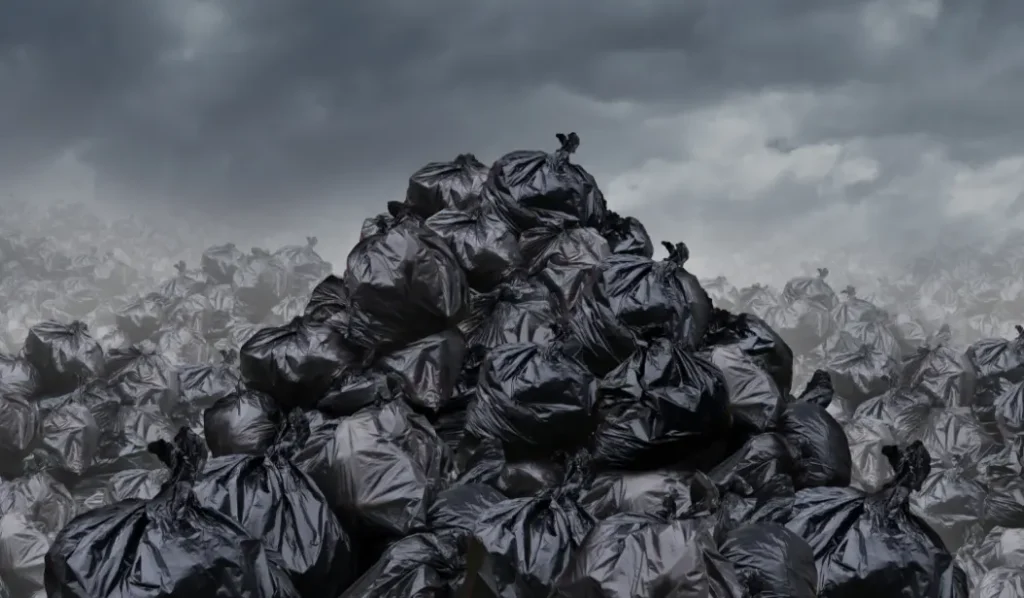
Managerial, technical, and financial issues are the main challenges for developing countries working to reduce food wastage.
Food waste occurs due to different constraints, such as lack of management, inadequate finances, and technical issues in harvesting, processing, storage, distribution, and marketing systems.
Consumers Behavior :
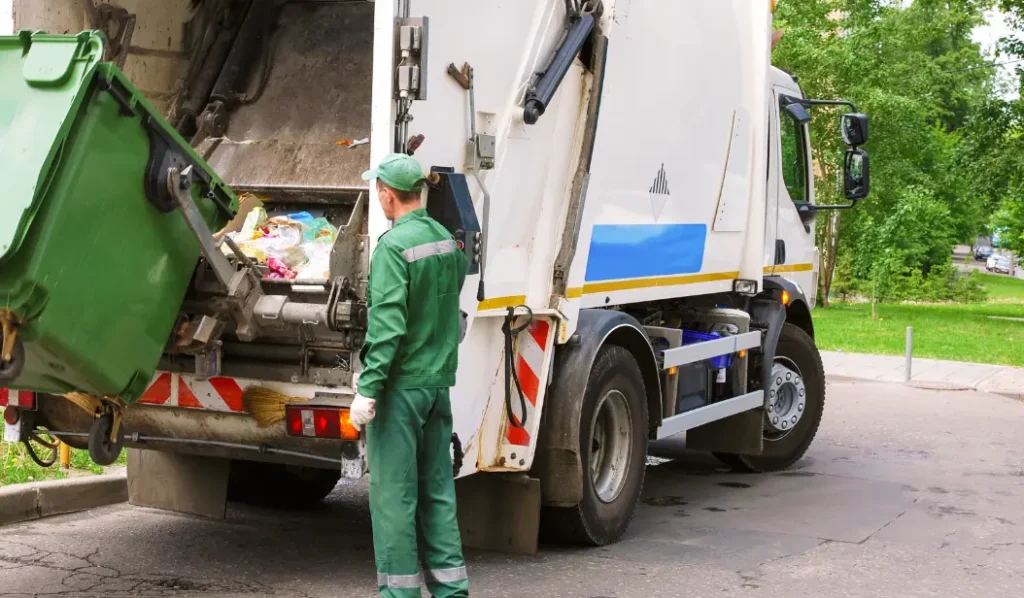
The purchasing of food items varies from consumer to consumer because different consumers have different purchasing behavior.
The consumer behavior on focus here is their ability of judgment, which results in preferring only unblemished fruits and vegetables with shelf-life dates.
Such consumer behaviors do not contribute to food waste. But when consumers buy more than their need, they end up contributing to food waste.
What Are The Effects Of Food Waste?
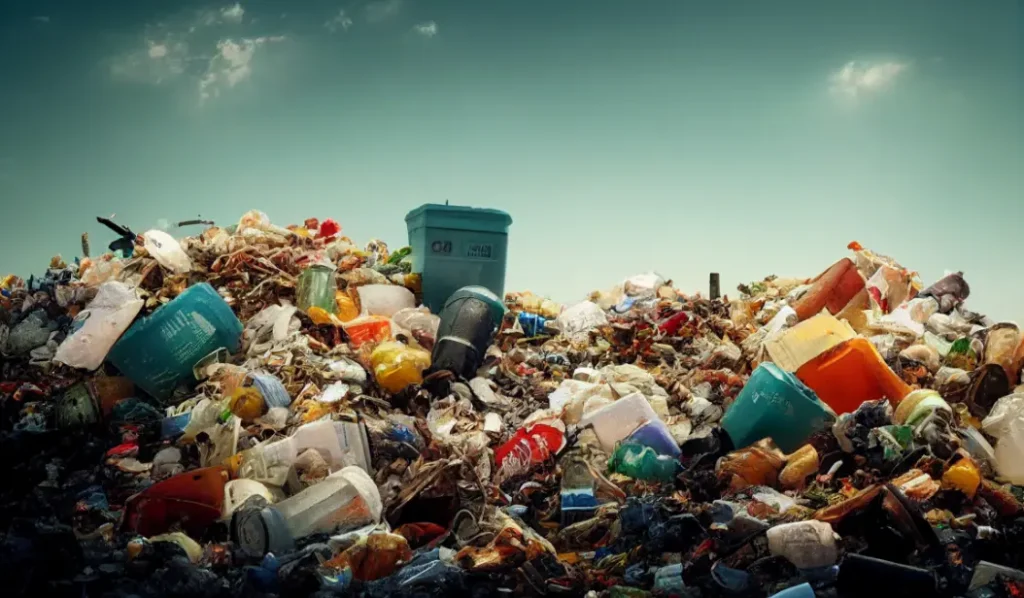
Food waste not only causes financial losses but also impacts our environment. It is also a cause of greenhouse gasses and landfills, resulting in climate change. Let’s take a closer look at the effects of food waste:
Loss Of Biodiversity:
Biodiversity is important to maintain the balance of ecosystems on our planet and keep it habitable.
Food waste is creating biodiversity loss at a global level. In order to increase agricultural production and meet the food demands of growing populations, farmers have invaded the wild lands, which led to biodiversity loss.
When food waste occurs, more and more food is needed to be produced to fulfill worldwide food demands.
As a result, the practices such as deforestation, burning, and conversion of wild areas into farmlands destroy the natural habitats of animals and birds, and other living beings, ultimately causing a loss of biodiversity.
Furthermore, agricultural practices like mono-cropping also contribute to biodiversity loss. The use of pesticides and mass production of livestock are also some reasons that affect the habitats of animals and birds.
Bluewater Footprint:
The amount of water used in agriculture and food production is immense. Therefore, if a large number of food is wasted, it means the water used in the production of that is also wasted.
It contributes to a blue water footprint, meaning the number of consumed surfaces and groundwater resources that go to waste.
According to a study, food wastage is responsible for the wastage of around 250 cubic Kilometers of water. This amount of water is equivalent to thrice the volume of Lake Geneva.
It is also found that wasting one Kilogram of beef is equal to wasting 50,000 liters of water used in the meat production process.
Similarly, if you pour one glass of milk into the drain, it means wasting 1000 liters of water.
Wastage Of Fertile Land:
According to research, the food that goes wasted accounts for almost 1.4 billion hectares of land, which is equal to almost ⅓ of the agricultural land of our planet.
Let’s look at this from a well-thought-analytical angle. We can see that the world is wasting 30 percent of its fertile land that could otherwise be used for meaningful purposes such as the cultivation of crops or environmental research.
Acceleration Of Climate Change:
The food produced and goes uneaten or wasted is estimated to be equivalent to 3.3 billion tons of greenhouse gas emission, increasing the impacts of climate change. Research also showed that food waste is the third biggest cause of greenhouse gases.
The reason behind this is the use of energy and fossil fuels in food production, including cooking and processing, along with transportation to different consumer markets worldwide.
What’s more, the food waste thrown also results in landfills and produces methane gas.
It is more effective at trapping heat in the atmosphere and ultimately aggravates global warming and climate change.
Economic Impacts Of food wastes:
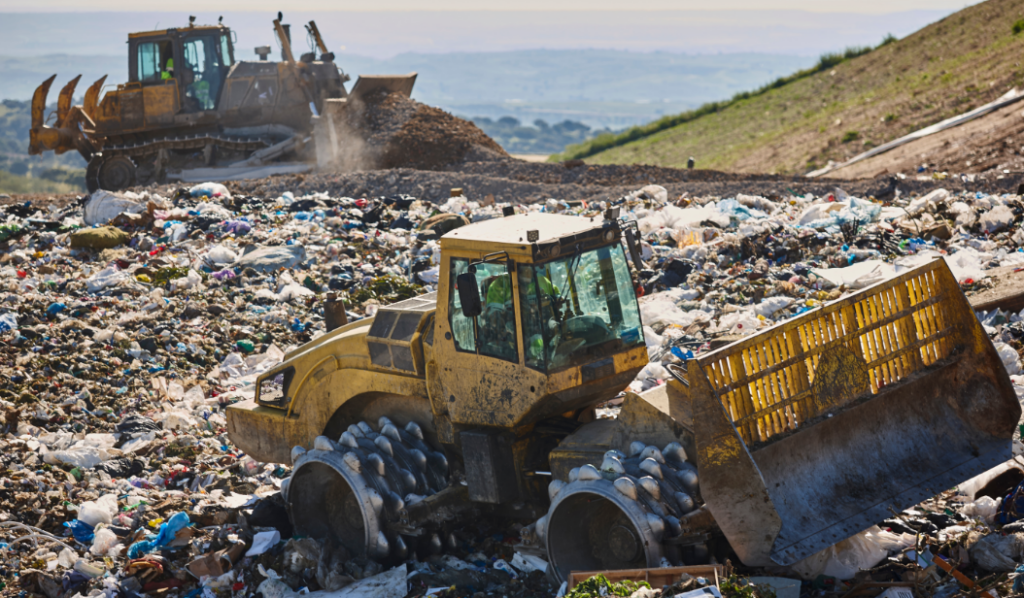
Along with the environmental impact, food waste also results in economical costs. Approximately 1 trillion dollars‘ worth of food is lost each year due to food loss or food waste.
Food loss is defined as food damaged when it is moved through the supply chain. In contrast, food waste is the edible food that retailers or consumers throw.
According to a report by FAO, the economic losses related to food waste cost about 750 billion dollars per annum.
Effective Solution To Reduce Food Waste:
For many people in the world, wasting food has become a habit. Some common habits are buying more than they need and letting fruits and vegetables spoil on their shelves.
However, food waste is becoming a serious problem causing a major role in climate change and food insecurity.
Here are some effective food waste solutions that can help you to minimize food wastage and play a positive role in protecting your planet.
Balancing Food Production and Demand:
First of all, precedence should be centered on balancing food production with the demand from the consumer and reducing food waste.
The most important thing that food manufacturing companies, hotels, and food services industries need to do is to cut back the natural resources in food production.
Hotels and restaurants can also use risk management tools to reduce food waste at their ends.
These tools will make sure that the managers and chefs only produce foods in accordance with the demand of consumers and only for the amount that people order.
Producing food in large batches always results in food wastage.
So in order to save food, money, and labor, the entire food service industry should produce food in small batches and only when there is a demand.
Improving Steps Of Food Supply Chain:

Another way to reduce food wastage is to develop efficient food production technologies and better systems for harvesting, processing, storage, and distribution.
When we have efficient processes at each step, food waste is reduced. Adopting a redistribution strategy is also a good way to minimize food waste.
According to this strategy, food is supplied more in areas where there is a need and reduced food supplies in areas where food is surplus.
Governments and NGOs can improve the steps of harvesting, storage, and distribution by providing subsidies and training and spreading awareness of the food waste problem, especially in developing countries
Food waste Reduction Initiatives:
Supermarkets, retail food stores, hotels, restaurants, food service industries, and individual consumers all should work on their side and take initiatives to make creative efforts and reduce food prints.
For example, individual consumers can play a role in reducing food waste by not necessarily placing a high preference only for very high-quality food quality.
Sometimes, even blemished or ugly food items are still items that can be used in different dishes like soups.
Similarly, reducing over-merchandizing can also be a good initiative toward reducing food waste.
Planning For Food Purchase and Preparation:
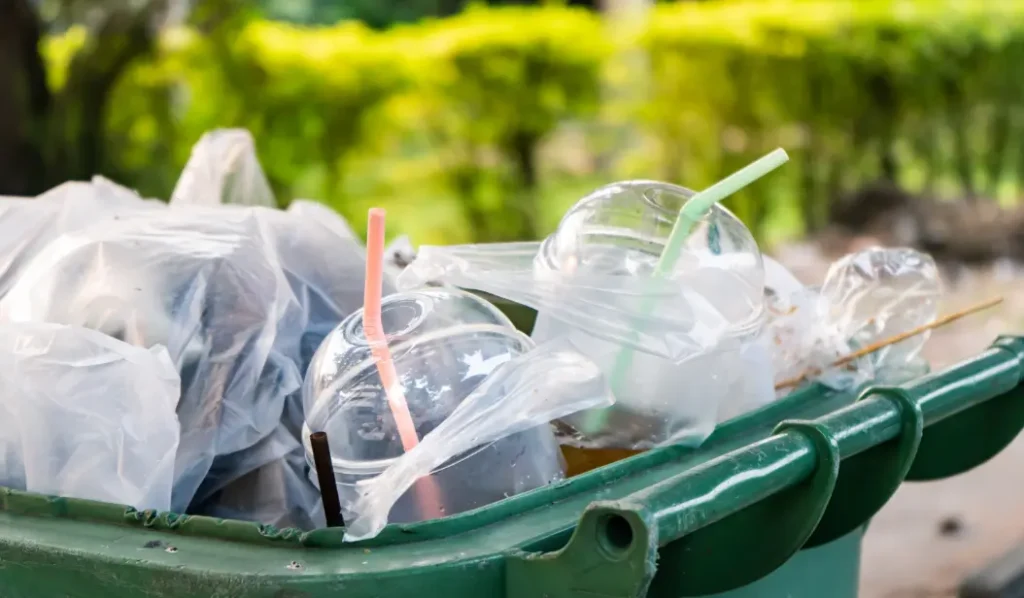
Another way to reduce food waste problems is to prepare proper plans before going grocery or purchasing food items.
You should never purchase extra products because they end up going into bins. Using meal plans to prepare food is a good way to reduce food waste.
Food Recycling :
Many efforts are already being made, but methods and technologies need to be improved.
For example, starch-rich foods like bread, biscuits, cereals, and crisps can be recycled into high-quality livestock feed.
The food packaging materials should also be recycled to reduce the over-exploitation of virgin material.
Even if the food is completely unfit for consumption, it can still be converted into another product instead of being thrown into landfills and emitting methane gas.
Awareness Campaigns:
Campaigns for reducing food print can help farmers, food processors, fishers, supermarkets, and individual consumers.
It also boosts the local and national governments’ efforts and strategies for preventing food wastage.
The FAO and United Nations (UN) have already launched many campaigns with an emphasis on the “Think Eat Save-Reduce Your Footprint.“ by running more and more such campaigns.
A large number of societies will be informed about the ways of reducing food footprints and get the facts about the food waste environmental impacts.
Ultimately, all of this helps in solving the problem of food waste.
Conclusion:
Food waste is becoming a growing problem all across the world. It not only causes food insecurity but also a reason for the wastage of natural resources like water that is used in the production of food.
Everyone, from individual consumers to food processing industries and restaurants, plays a role in food wastage, so there is a need to take the initiative at every single stage of food production, processing, and distribution to reduce food waste.
We hope this article helps you understand the causes, effects, and solutions to the food waste problem.



